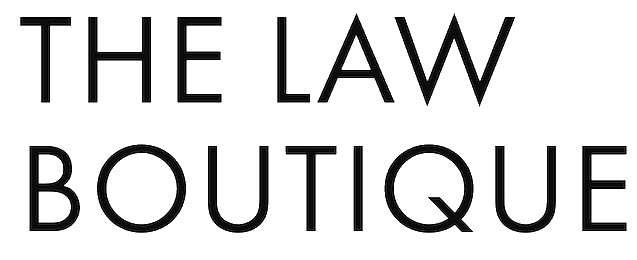
Guest post by Roisin Noonan, Legal Designer / COO of The Law Boutique
Lawyers are among the least trusted professionals in the world. This is even in spite of ours being a profession which is actually obligated to act in such a way that upholds public trust and confidence in the profession.
What’s going on here? And what can we do about it?
Well, we can start by addressing the way we communicate.
The problem
Lawyers are treated as a breed apart and we have no-one to blame for this but ourselves. We often just can’t resist spinning out those clever arguments, couched in florid language, and peppered with Latin. But whilst it might have made sense for the business of law to be conducted in Latin in Ancient Rome, this seems less sensible over 2,000 years later.
For outsiders, this special language reserved just for lawyers feels complicated, confusing and alienating. In fact, poor communication is a specific ground for complaint to the Legal Ombudsman and a recent Legal Services Consumer Panel and YouGov report found that just 40% of UK consumers said that they trust lawyers to tell the truth.
What can be done to improve these pretty dismal statistics?
Resisting the urge
We get that it’s often easier to say it in ‘legalese’ than it is in ‘plain English’. Technical language is sometimes unavoidable – for example, it makes sense to use the term ‘indemnity’ rather than ‘you’ll refund us if we have to spend money or if we lose money because of something silly you did’.
But our choice of words matters. Every word is a chance to make a connection with our work output, it’s incumbent on us to keep it simple (and even engaging!) where we can.
We’ve tried to keep it both of those things in our Privacy Policy. As a result, this policy is the second most viewed page on our website. Who knew a privacy policy could be so interesting?
It’s about design thinking
There’s a lot of hype at the moment around legal design. People often think that ‘legal design’ is throwing some pretty designs into a contract to make it more relatable. In fact, it’s much more basic than that. It’s simply about viewing things from the user’s perspective and empathising with them. From this point of empathy, we as lawyers are able to identify what the user really needs from us and our advice.
Start with what matters to the user
Ok, so what is it that consumers of legal advice need?
As lawyers, we often feel compelled to explain to our users why we think something before we tell them what we actually think — especially if it’s not what the user wants to hear. We often force users to read through pages and pages before we get to the bit people really want to know – the answer. What we forget is that the answer, and how it affects the user, is pretty much all they care about. So you might want to start with that. Then you can give some context.
Here’s an example of how to structure advice. Firstly, start by defining the questions the user really wants the answers to. The structure might be:
- Can I do what I want to do?
- Will I get in trouble because of it?
- How much is this going to cost?
- Anything else I need to know?
Obiter dictum
Just kidding. We mean ‘Some concluding (non-binding) remarks’.
If your first question in everything you do is thinking about what your user really needs to know and how they’ll respond to the format you’re using to give it to them – you can’t go wrong.
—
About the author:

Roisin trained and qualified as a financial regulatory lawyer at a City law firm, before moving on to cryptocurrency start-up Circle, where she supported the business to scale whilst navigating an uncertain regulatory landscape. Having experienced both the Magic Circle law firm and growth start-up environments, Roisin joined The Law Boutique in the belief that Big Law is no longer fit for purpose, with there being a real need to make law more accessible, agile and better-designed for its consumers.

Amen.
Roisin
The answer to your question is “Before 1970”
Around that time I worked for Which? on consumer research into legal and housing services – particularly conveyancing.
This was the first time that such research had been carried out in the UK with the exception of a Mass Observation asking 2000 people in the street during the 1930s whether they had seen a solicitor within a certain period. One said that she did not know.
Which? wanted to know what clients thought was good or bad about solicitors services. It had kept the names of subscribers whose addresses had changed and sent out questionnaires to them. Which? members love filling in forms but the response was awesome
I had to interrogate a computer to find what made clients like the service. It was neither cost nor promptness. The one single-issue question which tracked overall-service quality assessment was “How well were you kept informed?” I was the first person in the UK to see hard data linking satisfaction with legal services to communication.
Sounds old hat now but has the profession learned anything?
I was widowed and downsized mid-2017. Completion arrangements were so disorganised and uncaring that my diabetes went out of control. Two days later I was on a trolley being rammed through doors marked “resuscitation”. Legal services should come with a health warning about what the poor communication can do
And I became a lessee for the first time. My lease lacks index, table of contents and section and paragraph headings. For most extraction information is a matter of starting at the front and reading through until you find what you want. Or not.
I emailed the landlord that the wrong date was given in a rent demand. He had to ring me because he couldn’t find it in the lease. And he paid a lawyer for producing the abomination – and signed it
My dream remains to live long enough to see leases transmogrified from barriers to knowledge about our homes into useful sources of information in comprehensive and accessible manuals for residents. But I leave the task to younger generations
Were you one of the egal designers whose ODI talk I went to?